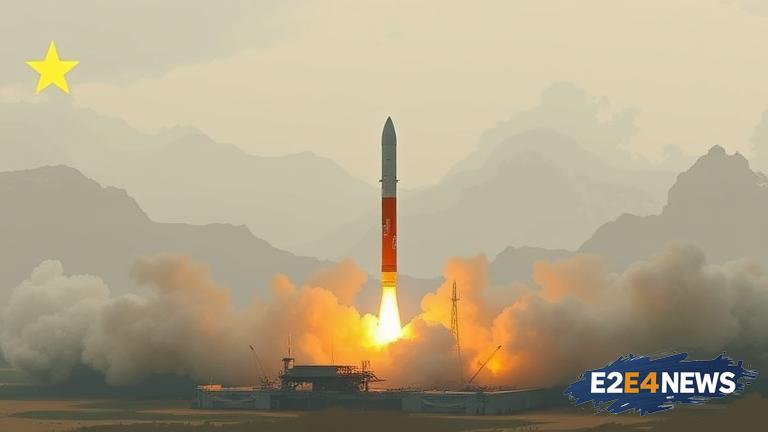China has officially unveiled its advanced nuclear capabilities, marking a significant shift in the country’s military strategy and sparking widespread concern among global security experts. The announcement, made on August 25, 2025, highlights China’s commitment to developing its nuclear arsenal, with a focus on advanced technologies and capabilities. According to reports, China’s nuclear program has made significant strides in recent years, with the development of new nuclear reactors, submarines, and ballistic missiles. The country’s nuclear capabilities are now considered to be on par with those of the United States and Russia, with some experts warning that China’s nuclear arsenal could soon surpass that of its rivals. The implications of China’s nuclear advancements are far-reaching, with potential consequences for global security, geopolitical relations, and the balance of power in the Asia-Pacific region. Experts warn that China’s nuclear capabilities could embolden the country to take a more aggressive stance on regional issues, potentially leading to increased tensions with neighboring countries. Furthermore, China’s nuclear advancements could also spark a new era of nuclear proliferation, as other countries in the region seek to develop their own nuclear capabilities in response. The United States, in particular, has expressed concerns about China’s nuclear program, with officials warning that it could undermine regional stability and security. In response to China’s nuclear advancements, the United States has announced plans to strengthen its own nuclear capabilities, including the development of new nuclear reactors and ballistic missiles. The move has sparked concerns among experts, who warn that a nuclear arms race between the United States and China could have catastrophic consequences for global security. Meanwhile, other countries in the region, including Japan and South Korea, have also expressed concerns about China’s nuclear capabilities, with some calling for increased cooperation and diplomacy to address the issue. Despite the concerns, China has maintained that its nuclear program is purely for defensive purposes, with officials stating that the country’s nuclear capabilities are necessary to protect its national security and interests. However, experts remain skeptical, pointing to China’s history of aggression in the region and its growing military presence. As tensions continue to rise, experts warn that the situation could escalate into a full-blown crisis, with potentially devastating consequences for global security. In light of these developments, it is essential for countries to engage in diplomatic efforts to address the issue and prevent a nuclear arms race. The international community must come together to establish clear guidelines and regulations for nuclear development, and to promote transparency and cooperation among nations. Ultimately, the goal should be to reduce the risk of nuclear conflict and promote a more stable and secure world. The situation is complex and multifaceted, requiring a nuanced and comprehensive approach to address the concerns and challenges posed by China’s nuclear advancements. As the world watches with bated breath, one thing is clear: the unveiling of China’s advanced nuclear capabilities marks a new era of global security concerns, and it is up to the international community to respond in a way that promotes peace, stability, and security for all. The development of China’s nuclear program has significant implications for the global economy, as it could lead to increased tensions and instability in the region. This, in turn, could have a negative impact on trade and investment, potentially leading to economic losses and instability. Furthermore, the development of China’s nuclear program could also have significant environmental implications, as the production and testing of nuclear weapons can have devastating effects on the environment. In conclusion, the unveiling of China’s advanced nuclear capabilities is a significant development that has far-reaching implications for global security, geopolitical relations, and the environment. It is essential for countries to engage in diplomatic efforts to address the issue and prevent a nuclear arms race, and to promote transparency and cooperation among nations.
